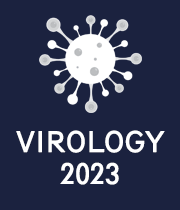Virology 2023 Important Update
This is to inform that Virology 2023 event is now merged with Infection 2023 which will be held on same dates June 21-22, 2023 in Rome, Italy and virtually.
For complete details about the merged event, please visit: https://infectiouscongress.com
For further details, please contact us at infectious@magnusconference.com or call + 1 (702) 988 2320
Molecular and Cellular Virology
The study of viruses at the molecular level is known as molecular virology. Viruses are small parasitic parasites that proliferate inside the cells of their hosts. Viruses have more biological diversity than the rest of the bacterial, plant, and animal kingdoms combined because they can successfully infect and parasitize a wide range of life forms, from microbes to plants and animals. Understanding how viruses interact with their hosts, replicate inside them, and because diseases require a deeper understanding of their diversity. Molecular and Cellular Biology of Viruses investigates virus research. The primary goals are to learn more about how these viruses interact with their hosts on a cellular and molecular level, as well as to find new antiviral targets.
- Gene Expression
- Genome Replication
- Host-Pathogen Interactions
- Medical Implications and Consequences
- Molecular Mechanisms

